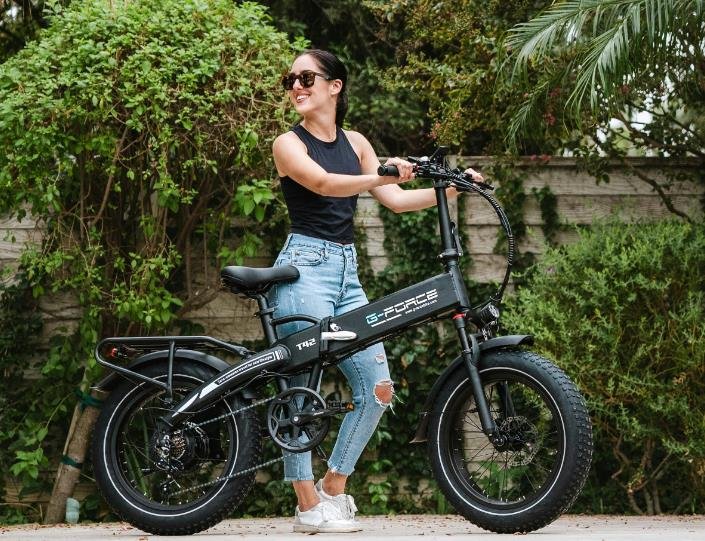A creative YouTuber transforms discarded vape batteries into a powerful e-bike, showcasing a sustainable approach to combating electronic waste.
At a recent music festival, Chris Doel stumbled upon a mountain of single-use vape batteries littering the grounds. Instead of discarding them, he saw an opportunity. “Disposable vapes are indefensible,” Doel stated on his YouTube channel. He took 130 of these batteries, typically thrown away after one use, and repurposed them into a functional e-bike battery pack.
The project, detailed in a post on Ars Technica, demonstrates that many disposable vape batteries are actually rechargeable. Doel’s ingenuity turned these discarded cells into a 48-volt, 1,500-watt battery. This battery powered his e-bike for over 20 miles with minimal pedaling, proving that waste can be transformed into something valuable.
The E-Waste Crisis: Vapes Add to the Problem
Lithium-ion batteries are everywhere—phones, laptops, and increasingly, single-use vaping devices. These batteries are not meant to be disposed of like regular trash. Yet, millions end up in landfills each year, contributing to a growing e-waste epidemic.
In the UK alone, over 260 million vape batteries are estimated to enter the trash stream annually. This staggering number highlights the urgent need for better recycling practices. “Vapers and vape makers are simply leaving an e-waste epidemic to the planet’s future residents to sort out,” Doel emphasized.
- UK Vape Batteries in Trash: 260 million annually
- US Annual Lithium Waste from Vapes: 23.6 tons
- Potential EVs Supported by US Vape Lithium Waste: 2,600 electric vehicles
These numbers reveal the massive scale of the problem and the potential benefits of innovative recycling solutions.

Chris Doel’s DIY Solution: A Closer Look
Doel’s project wasn’t just about creating an e-bike battery; it was a statement against the wastefulness of disposable products. By harvesting the batteries from discarded vapes, he demonstrated that these devices have more life left in them than manufacturers admit.
He used 20400 model cells, each rated at 1.5Ah, to build his battery pack. The entire project cost him about £60 in parts, showcasing an affordable way to tackle e-waste. “The cells used in these videos were 20400s and were 1.5Ah each, which is really impressive given that they’re free,” Doel shared in a Reddit comment.
The YouTube video of this project has amassed nearly 900K views, reflecting widespread interest and support for sustainable DIY initiatives. Doel’s earlier video, where he created a fast-charging power bank from 35 disposable vape batteries, also garnered significant attention, highlighting his commitment to environmental solutions.
Implications for Micromobility and Recycling
Doel’s project raises important questions about the future of micromobility and e-waste recycling. Could more effective recycling methods accelerate the transition from fossil fuels to electric transportation? On a small scale, certainly. But the potential impact is much larger.
US PIRG estimates that the lithium from wasted vapes in the US amounts to about 23.6 tons annually. This is enough lithium to support 2,600 electric vehicles. Imagine the possibilities if similar projects were scaled up. It could significantly reduce the demand for newly mined lithium and mitigate the environmental impact of e-waste.
Potential Innovations Inspired by Doel:
- Vape Battery Recycling Startups: Businesses focused on collecting and repurposing vape batteries.
- Smart Battery-Swapping Stations: Facilities where consumers can exchange used vape batteries for reusable ones.
- Vape-Sharing Apps: Platforms that facilitate the sharing and recycling of vape batteries.
- EV Skateboard Manufacturers: Companies creating electric skateboards powered by repurposed vape batteries.
These ideas hint at a future where e-waste is no longer a burden but a resource for innovation.
Community and Environmental Impact
Doel’s initiative not only addresses e-waste but also promotes community awareness about sustainable practices. By sharing his project online, he encourages others to think creatively about waste and resourcefulness.
“Most one-use vape batteries are actually rechargeable,” Doel pointed out, urging both consumers and manufacturers to reconsider the lifecycle of disposable products. His work underscores the importance of individual action in tackling global environmental challenges.
Moreover, projects like Doel’s can inspire a cultural shift towards valuing sustainability and reducing waste. It’s about making conscious choices that benefit both the environment and the economy.
Future of E-Waste and Sustainable Innovation
The success of Doel’s e-bike project could pave the way for more sustainable innovations. As awareness grows about the e-waste problem, more individuals and businesses may seek out creative solutions to repurpose discarded electronics.
Steps Forward:
- Increased Recycling Efforts: Encouraging the collection and repurposing of disposable vape batteries.
- Innovation in E-Waste Solutions: Developing new technologies to efficiently recycle and reuse electronic components.
- Public Awareness Campaigns: Educating the community about the environmental impact of e-waste and the importance of sustainable practices.
- Policy and Regulation: Implementing regulations that promote responsible disposal and recycling of electronic waste.
The future holds promising possibilities for reducing e-waste through innovative, community-driven projects like Chris Doel’s.
Maria Garcia is an award-winning author who excels in creating engaging cannabis-centric articles that captivate audiences. Her versatile writing style allows her to cover a wide range of topics within the cannabis space, from advocacy and social justice to product reviews and lifestyle features. Maria’s dedication to promoting education and awareness about cannabis shines through in her thoughtfully curated content that resonates with both seasoned enthusiasts and newcomers alike.








